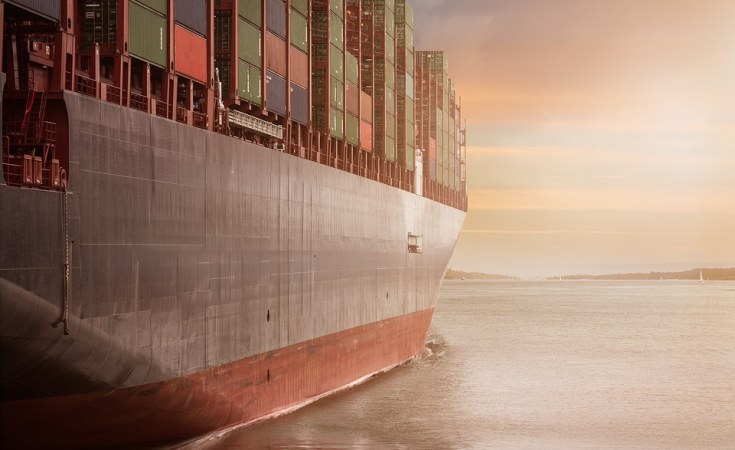The CBAM will push producers to decarbonise yet make it harder to do so. Our modelling suggests the policy could cut Africa's GDP by $25 billion.
To turn the tide on climate change, it is essential that high-emitting regions of the world take urgent action. However, not all climate action is made equal. Poorly designed policies can end up doing more harm than good.
We recently conducted a study into the European Union's Carbon Border Adjustment Mechanism (CBAM), which will enter into force in its transitional phase in October 2023. The aim of the regulation is to reduce the risk of so-called "carbon leakage" whereby EU-based companies relocate their emissions-intensive operations to countries with weaker climate policies.
The CBAM is intended to avoid this by ensuring that the carbon price of imports is equivalent to those produced in the EU. Under its terms, importers will be required to buy CBAM certificates that will cover the price difference between the carbon price paid in the country of production (if one is paid) and the price of carbon allowances in the EU emissions trading scheme (ETS). It is also hoped the CBAM will motivate foreign producers to reduce their carbon emissions to make their exports to the EU more competitive.
This is one of the EU's landmark climate policies. Yet a study by the UN's trade and development body UNCTAD that modelled the effects of CBAM found that the policy would reduce global emissions by a mere 0.1% (at a carbon price of $44/tonne) to 0.16% (at a carbon price of $88/tonne).
Our study found that CBAM's economic repercussions will be far-reaching - and most strongly felt in Africa. Based on a carbon price of Ꞓ87 ($94) per tonne (at the time of writing, the EU price of carbon was Ꞓ88 per tonne), our modelling forecasts that the CBAM could reduce the continent's GDP by 0.91%. This is equivalent to a fall of $25 billion at 2021 levels of GDP. Some of Africa's least developed countries - including The Gambia, Mauritania, and Mozambique - will be especially hard-hit according to our projections.
CBAM's negative impact on African economies is partly due to the products that have initially been selected to be covered by the mechanism - namely iron and steel, cement, aluminium, fertiliser, hydrogen, and electricity. For African producers, the EU is an important market for these.
Going forward, the EU has left open the option of expanding CBAM's scope to additional products and sectors at risk of carbon leakage. In this scenario, our model suggests that Africa's least developed countries stand to sustain a moderate to large negative impact to their GDP of between 1.5% and 8.4%.
These predicted effects are especially worrying given Africa's limited progress in securing finance for it to transition to sustainable energy use. In fact, between 2015 and 2021, per capita renewable energy finance in Africa saw a staggering 55% decline. The cost of capital for renewable energy in Africa meanwhile is the highest in the world. The average cost of capital across the three main renewable energy technologies is 8.2% in Africa, compared to 4.4% in Europe.
Despite CBAM's potential impact on African economies, the reality is that the CBAM is here to stay. Moreover, other regions may well follow the EU's lead in imposing similar regimes. The US, Japan, Canada, and UK are each already considering their own alternatives. These mechanisms would generate further pressure against carbon-intensive production globally, but our modelling suggest their impacts would proportionally fall less heavily on Africa. This is due to these countries' lesser importance as import markets for the continent's producers. Instead, economies such as China and India would be most affected.
Don't miss a thing. Sign up to the free African Arguments weekly newsletter.
Leave this field empty if you're human:
As regards the legality of the CBAM under the World Trade Organisation (WTO) legal framework, our assessment concluded that the matter is not clear-cut given ambiguities in the rules. It is likely to remain this way. The WTO's appeal mechanism is not currently functioning, meaning that rulings at lower levels of the dispute settlement process are being appealed "into the void", leaving matters indefinitely unresolved.
The CBAM creates a catch-22 situation for African countries. It forces economies to decarbonise to access EU markets but, at the same, further limits their access to finance to make this transition.
As policies to decarbonise trade gain ground, the African Continental Free Trade Area (AfCFTA) can help Africa face the challenges. The free trade area can be a powerful resource not just for integrating African economies but also for establishing commonalities for meeting changing prerequisites for engagement in regional and global value chains. This will involve an expensive transition to a new energy infrastructure. Nonetheless, still struggling with extensive extreme poverty, this will be more difficult for African countries than for more advanced and secure economies elsewhere in the world. Not all climate action is made equal.
Faten Aggad is a Senior Advisor on Climate Diplomacy and Geopolitics at the African Climate Foundation. David Luke is a professor in practice and strategic director at the Firoz Lalji Institute for Africa, LSE. He specialises in African trade policy and trade negotiations.


